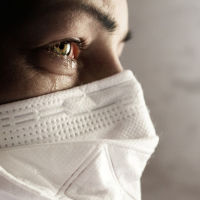The COVID-19 pandemic has caused a major disruption to regular healthcare services. As the novel coronavirus is highly contagious, hospitals need to double down on their infection control strategies to reduce nosocomial spread. Routine screening of patients and staff would be one such strategy, but what if not everyone agrees to be tested?
You might also like:Testing and COVID-19
Based on past experience with the SARS outbreak of 2013, effective prevention strategies must include extensive testing (antibody and/or antigen) of both hospital staff and patients. Such mandatory testing is necessary to ensure that infected individuals are quickly isolated, thus minimising the risk of transmitting the virus to others.
But what happens if a patient refuses to get tested? A new study (Dermott and Newman 2020) published ahead of print in Clinical Medicine looks into this problem. It notes that 'patient autonomy' is a key consideration in medical ethics. On the other hand, the current pandemic falls under 'exceptional circumstances' that can override such individual autonomy in the name of protecting public health.
In handling cases of non-compliance with a hospital's testing protocol, it would be best to explore the reasons why the patient is shunning testing. Since not much is known about SARS-CoV-2, the pathogen that causes COVID-19, the patient's refusal may have stemmed from incorrect beliefs about the new coronavirus or the consequences of viral testing.
In the UK, under the Coronavirus Act 2020, failure to comply with testing requirements "without reasonable excuse" could result in a maximum fine of £1,000 (€1,117).
However, invoking the law to ensure patient compliance should only be made as a last option – and only if required. Instead, healthcare professionals should do their best to correct any misconceptions the patient may have about SARS-CoV-2 and make them aware of the benefits of viral testing.
There's ample literature about testing for other communicable diseases such as tuberculosis (TB) and HIV, from which hospitals can get guidance on creating an optimal approach in persuading patients to comply with testing protocols.
Source: Royal College of Physicians
References:
Dermott JH and Newman WG (2020) Refusal of viral testing during the SARS-CoV-2 pandemic. Clinical Medicine 20(5). Published ahead of print on 3 July. doi:10.7861/clinmed.2020-0388



























